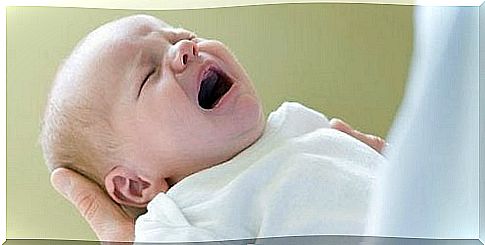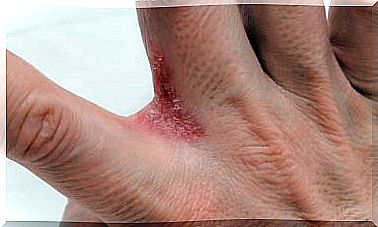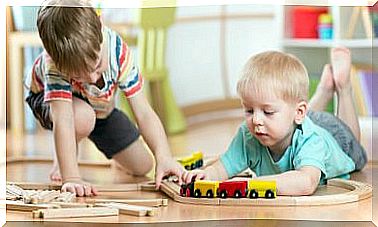Digestive Disorders In The Baby

Digestive disorders in the baby are more common than we think, according to a review published in 2015. In fact, statistics show that the 50% of babies have mild digestive disorders in their first months of life due to immaturity of their digestive system and, although this problem can be overcome without problems with changes in diet or spontaneously, it is necessary to recognize them so that they do not affect their development.
Digestive disorders in the baby
Digestive disorders in the baby can be diverse and are generally quite uncomfortable for him. Although these cause a lot of concern in parents, it must be remembered that they are usually quite common and that with the proper treatment, the discomfort can be alleviated. These are some of the disorders that the baby can suffer:
Colic
Colic or stomach pain are one of the mildest disorders that a newborn can present, especially when feeding with a bottle. This can lead to loud crying that often slows down when you are able to pass or pass gas. To relieve these pains, you can massage the stomach from top to bottom and in a clockwise direction.
Diarrhea
When breastfeeding, your child will make stools of a particular consistency and color: they will be sparse, grainy and golden yellow. If, on the other hand, you give him a bottle, his stools will be inconsistent and light in color. In either case, you should consult your pediatrician immediately, because there is a risk of dehydration. Generally, diarrhea in babies is infectious in origin. According to an article published in the journal “Gastroenterology”, there is also a high prevalence of diarrhea in babies caused by infectious agents or allergies.

Regurgitation and reflux
Spitting up occurs at the end of feeding, when the baby expels what he has ingested too much. They can only be avoided by being very attentive to whether the baby is satisfied, so that he does not eat more than he needs. Refluxes are ejections or vomiting, not always abundant, which occur at the end of the feed and usually occur at the slightest movement. They are generally associated with the immaturity of the baby’s digestive tract.
Constipation
Adding solid foods to your baby’s diet or switching from breast milk to formula can cause digestive disorders such as constipation. When this happens, it is best to consult with your pediatrician, although it is most likely that only some changes in the baby’s diet will be required.
Hiccup
This can be quite persistent and last a long time, but it is the least to worry about, since it does not harm the baby. It usually appears without any apparent cause and disappears spontaneously. In fact, babies tend to have hiccups in the womb very often.
What causes gas
Gas can be a sign that the baby’s digestive system continues to develop. Some babies cannot fully digest the lactose and proteins in infant formula because the enzymes are not yet fully active. Although this situation usually resolves spontaneously while the baby develops, it is important to inform the pediatrician to find a solution.
How to help the baby
- Put the baby in an upright position when feeding.
- You should make the baby burp with light patting on the back.
- You can apply gentle massages to the abdomen to relieve pain.
- Try feeding it small amounts.
- Calm your baby when he cries to prevent him from swallowing air.

Digestive disorders in babies are common!
The fastest way to detect that the child is suffering from digestive problems is to analyze his attitude daily. For example, if after eating or sleeping you are uncomfortable, sad or very attached, it may be because you feel bad. Most likely, to alleviate your discomfort, you want to contract and extend your legs at stomach level, due to the pain caused by gas. It may also happen that he cries non-stop.
This type of digestive disorders in babies, although they are quite uncomfortable and usually cause us a lot of concern, are totally normal in the first months of life. If you have any questions or concerns, it is best to consult your pediatrician.










